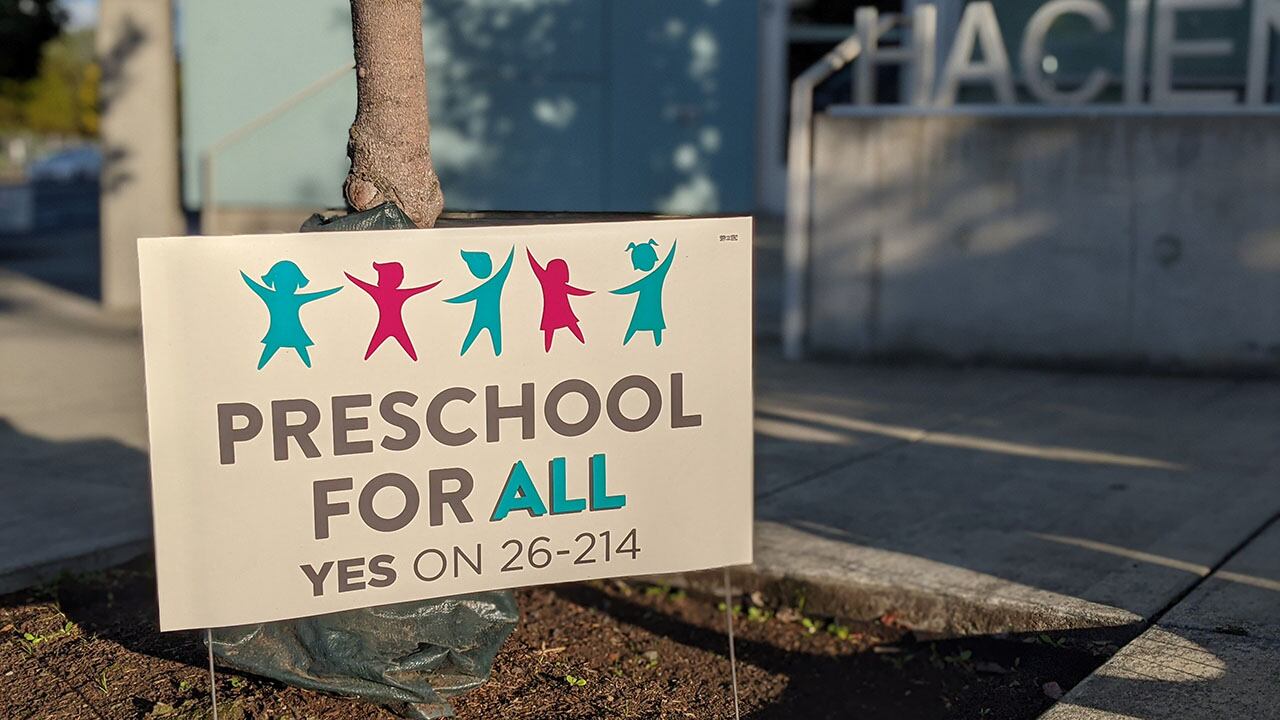Multnomah County number crunchers last week projected a 21% reduction in the amount of money that will be collected by the county's income tax to fund tuition-free preschool.
Last fall, the Preschool for All campaign for Ballot Measure 26-214 told voters it had consulted with "multiple technical experts" to arrive at its projected revenue figures.
The money will provide tuition-free preschool for 3- and 4-year-olds funded by a new personal income tax of 1.5 % on joint filers earning more than $200,000 and 3% on joint filers earning more than $400,000.
In the fall, the campaign told voters it expected the new tax, the first of its kind in the nation, to raise $133 million in its first year and to climb steadily from there.
Not so fast.
Now county accountants say that number will actually be significantly smaller—$105 million in the first year—and 21% less than the campaign told voters it would raise in the first four years.
Commissioners reacted with surprise last week. "Twenty-one percent is a lot," Commissioner Susheela Jayapal said.
So how did it happen?
County finance officials explained that, in calculations made prior to the election, they assumed double taxation in two ways.
The county's numbers ignored the fact that many high-income earners who would pay the new tax were business owners who also pay the county's business income tax. Charging them both taxes, the county decided, would be unfair.
That adjustment reduces revenues for preschoolers by 19%.
Similarly, residents of other states who earn income in Multnomah County would get taxed twice. The county will instead credit those payers for taxes paid elsewhere. That reduces revenues another 2 percentage points.
Jack Bogdanski, who teaches tax law at Lewis & Clark Law School, says county officials should have had their numbers straight before going to the ballot.
"The code should have been written before we voted," Bogdanski says. "Why are they just discovering this now?"
Bogdanski notes that because the credits for the county business income tax will only go to business owners, not to employees who earn high salaries, the new adjustments made by the county favor some taxpayers over others. He says that's information voters should have had before the election.
County spokeswoman Julie Sullivan-Springhetti says the campaign did disclose in materials circulated to voters that double taxation might affect "a small subset of business owners."
"Though material, these revenue adjustments were not unexpected," she says.
Remarkably, the 21% reduction in projected revenue will not reduce the number of children served.
"The program strategically planned very conservatively in anticipation of potential changes that could come from the tax code development," Sullivan-Springhetti says.
Commissioner Jessica Vega Pederson, the architect of the preschool tax, says the 21% reduction "was a bigger hit than I expected." But Vega Pederson says since the program won't begin serving children until the fall of 2022, there is time to make adjustments in how the money will be spent, including delaying some spending on professional development and non-classroom support services.
"The important thing is, we'll still have enough money to serve the kids," she says.

